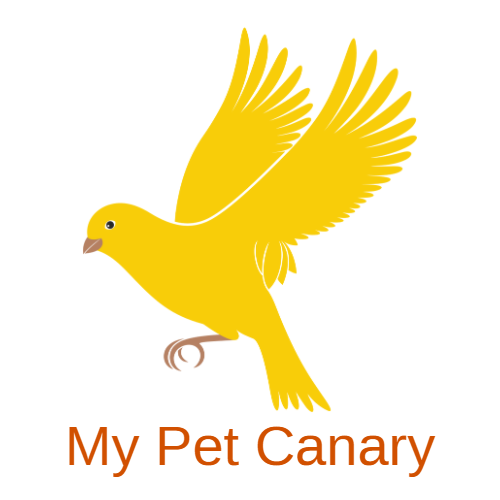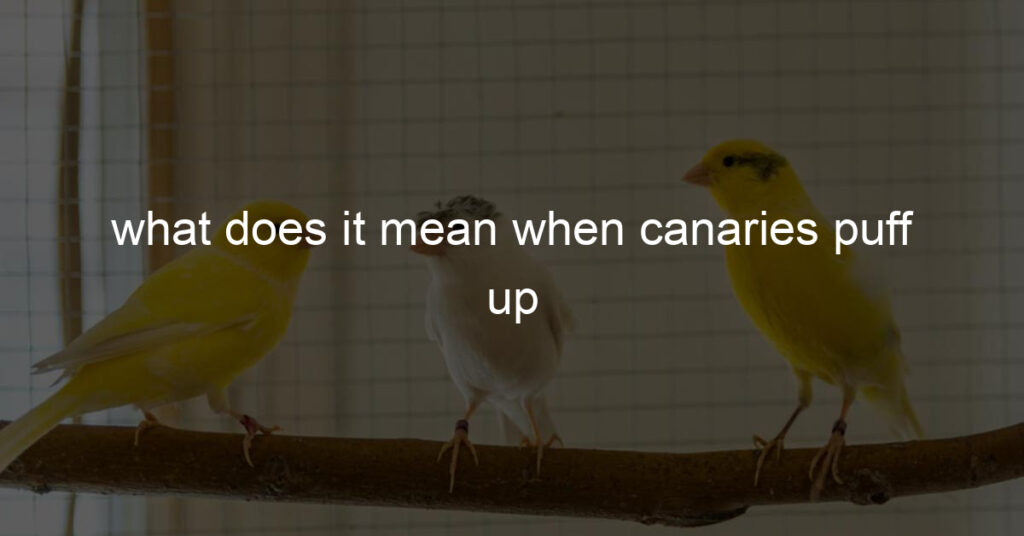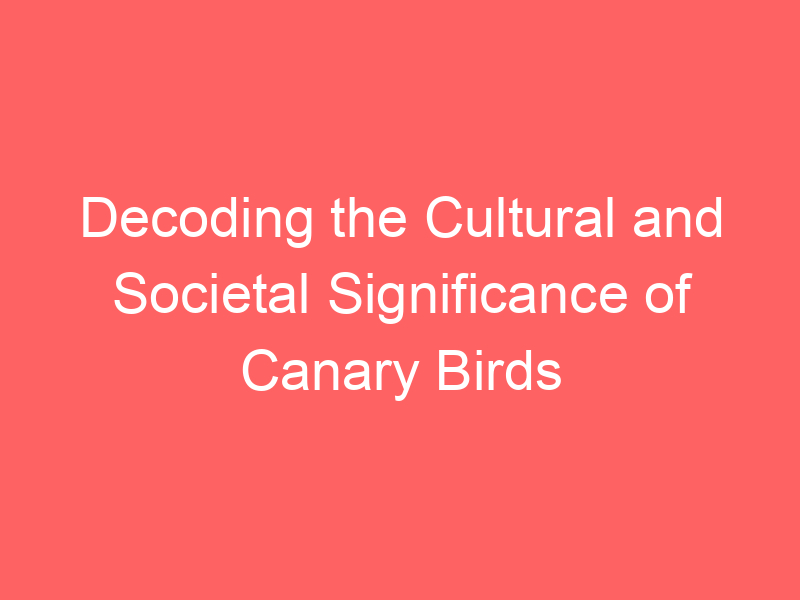You’re watching your pet canary in the cage, and suddenly it starts to puff up. Puffing up is a normal reaction where the bird feels trapped. It has a habit of trapping its own feathers so that it can escape from captivity again. You might have seen similar reactions in other birds as well. When your bird sees another bird in its cage, it will immediately get excited and eager to be let out. In order to escape from its confinement, the bird must first inflate itself by drawing air into every tiny pore of its body, resulting in a massive build-up of air in its body and eventually causing it to look like it is wearing a large ball on top of its head! While this happens, you’ll notice two things: 1) The bird gets more excited than ever and starts chirping louder than ever. 2) It also becomes more agitated than ever because it knows that there is no way out right now until you give it something to chew on again! This is how your pet canary reacts when trapped inside the cage – puffing up as an escape mechanism until you give them something they can eat or gnaw on again!
How do I know if my canary is happy?
As with most birds, canaries often use their feathers to communicate if something is wrong. However, there are certain signs that you should be on the lookout for when your pet bird starts puffing up. Besides being able to tell whether your bird is happy or sad based on the amount of puffing it does, you’ll be able to tell if its body language reveals anything else. If it starts fluffing its feathers out in an effort to fly away, that’s a sign that your pet might not have been fed recently or had enough water. Additionally, you might notice that it becomes more active and vocal than usual. The same goes for when your bird becomes very attentive to sounds around them – this could be a sign of stress or fear. If your canary suddenly stops all of its feather fluffing and starts standing still while appearing completely calm – then this is a clear indicator that something has definitely changed in the environment and everything’s ok!
How do you tell if a canary is stressed?
If a canary is stressed, you might see two things: 1) They are more hesitant to leave their cage than ever before. 2) They will often use their feathers as a way to comfort themselves.
What does it mean when a canary opens its mouth?
One of the most common and recognizable signs that a canary is feeling trapped is when it opens its mouth wide and sticks out its tongue. This is because it’s trying to get some oxygen. The bird is puffing up without any help from you, so it knows there’s no way out. It’s not enough to just chew on something or give them a toy; they need the extra oxygen, too! They’ll keep opening their mouth until you give them something to eat or gnaw on again!
Why is my canary breathing heavy?
Birds have the ability to inflate themselves because they are made up of air. This is not a new phenomenon – canaries and other birds have been doing this for thousands of years! One of the reasons why you’ve seen your canary puffing up is that it is trying to make more room for itself because it thinks there is too much pressure in its cage. If your bird has been performing this behavior for a long time, then this could be an indication of an underlying health condition like hyperventilation or foreign body aspiration. In these cases, the bird will produce an excess amount of carbon dioxide (CO2) which causes their gasping and heavy breathing.








